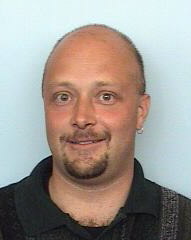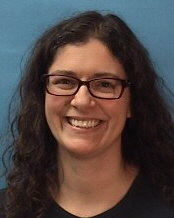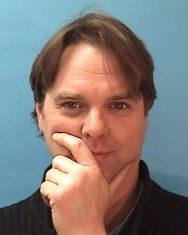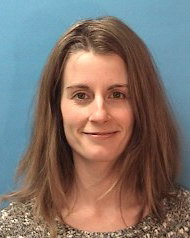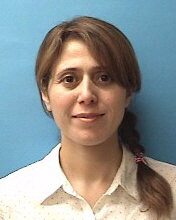Welcome
The purpose of this website is to provide information on our department’s faculty, and to provide current students access to common department documents like problem set solutions, sample final exams and equation sheets, as well as useful links.For class-specific resources, current students should connect to their teacher’s course-management system, such as Lea or Moodle. To learn about the college, its program structure, application procedures and more, visit the John Abbott College website.
Department
Members of the Department
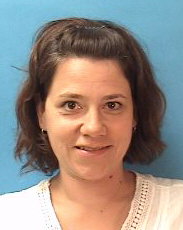
Hunzinger, Cindy
Co-Chair514-457-6610 ext. 5170
AME-215
cindy.hunzinger@johnabbott.qc.ca
I am a former John Abbott student. I graduated from McGill University in Civil Engineering (B.Eng 2000) and Structural Engineering (M.Eng 2002). After working for 9 years at an engineering consulting firm where I was designing bridges, I joined the AMAZING physics department at John Abbott.
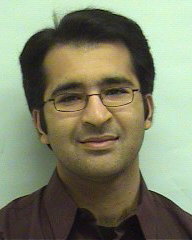
Jaffer, Karim
514-457-6610 ext. 5897
AME-218
karim.jaffer@johnabbott.qc.ca
I have been at John Abbott College (JAC) since 2006 teaching a variety of Physics and Pathways courses, and began teaching the Introductory Astronomy course in 2016 including the coordination of Astronomy observing activities and equipment available for students to borrow. I am an active researcher in Physics & Science Education, having served and coordinated several provincial projects in Math & Science education across the Secondary, Cegep and University levels. I have also taught in Physics, Mathematics, Education and Exercise Science at Bishop’s University, in Physics at Carleton University and at Marianopolis College. I am also currently the public events coordinator for the Royal Astronomical Society of Canada (RASC) - Montreal Centre.

Larade, Brian
514-457-6610 ext. 5996
AME-211
brian.larade@johnabbott.qc.ca
After graduating from physics at Mount Allison University (1998), I tackled my PhD (2002) at McGill, focusing on theoretical Quantum Mechanics. Not feeling punished enough, I ventured to Silicon Valley for a few years, working in the Quantum Science division of Hewlett Packard. I eventually found myself missing Montreal, and returned to a start-up company, after which I decided to give teaching a try. Joined the department here at John Abbott in 2007, and I can say with confidence it’s the best decision I ever made.
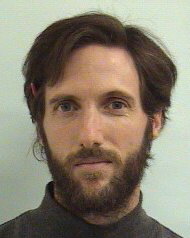
Larnder, Chris
514-457-6610 ext. 5890
AME-212
chris.larnder@johnabbott.qc.ca
I was happily teaching physics at Bishop’s University (academic years 1996 and 1997 ) when fellow McGill graduates convinced me to join them in a physics simulation start-up company in Montreal. I ended up spending the next eight years building physics and collision detection software for all kinds of 3D environments, including robotic and vehicular simulators, video games running on PS2, XBox and GameCube, virtual actors, and 3D animation packages for the film industry.I still track these many forms of virtual reality through my involvement in Montreal ACM SIGGRAPH, a computer graphics organization that produces regular public events with invited speakers from industry and government, academic researchers, educators and artists exploring the digital domain.
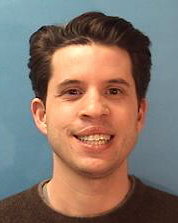
Mulcair, Greg
514-457-6610 ext. 5898
AME-209
greg.mulcair@johnabbott.qc.ca
I’m a John Abbott grad who went on to do my B.Eng in Mechanical Engineering at McGill University (where I was a member of the Mini Baja team) and my M.Eng in Aerospace Engineering at École Polytechnique (where I was project manager for a 21-student collaborative project with Bombardier, Bell Helicopter and Pratt & Whitney Canada). I worked for two years at Pratt & Whitney Canada within the Digital Engine program (evolving computer software towards the next generation of engineering design), before starting teaching part-time at John Abbott in the Engineering Technologies department in 2009. I joined the Physics department shortly thereafter and have continued to explore ways in which technology can be used to help students better engage with, and better grasp, the concepts taught in the sciences.
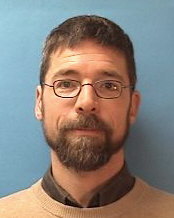
Portelance, Etienne
514-457-6610 ext. 5468
AME-218
etienne.portelance@johnabbott.qc.ca
I started teaching at John Abbott in 2016. Prior to that, I got my Engineering masters and bachelor degrees at École Polytechnique in Montreal. I worked for Bombardier, General Electric, Alstom, Messier Bugatti, a French consulting company and the very famous École de voile de Lachine where I taught sailing. I've worked on planes, trains (metro and tram-train stations mostly) and X-ray machines.

Tracy, Bruce
514-457-6610 ext. 5815
AME-211
bruce.tracy@johnabbott.qc.ca
I graduated from McGill University in Aerospace Engineering (B. Eng 1991, M. Eng. 1992). After working for a year on the doomed EH-101 helicopters, I joined Maya Heat Transfer for a little over six years, initially in Montreal, and then for three years based in Paris, France selling computational fluid dynamics and heat transfer analysis software. Following a three-year stint as a stay-at-home dad with my two sons, I taught Mathematics at The Henley College in England. I joined the Physics Department at John Abbott in August 2004 and I’m glad to be here!
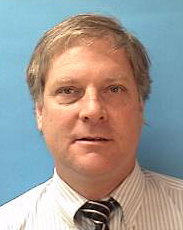
Tromp, Christopher
514-457-6610 ext. 5889
AME-210
christopher.tromp@johnabbott.qc.ca
After oscillating a bit between studying physics and engineering, I finally settled on engineering, completing a B. Eng. in Mechanical Engineering and an M.Sc. in Agricultural Engineering at McGill. Although doing all the math and physics involved in Engineering was lots of fun, I found explaining it to other people was even more fun, so I decided to become a teacher. I taught Math and Physics at various high schools in and around Montreal for about 15 years, and then came to Abbott in the fall of 2007.
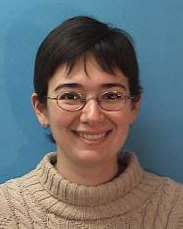
Viger, Caroline
514-457-6610 ext. 5887
AME-212
caroline.viger@johnabbott.qc.ca
Caroline graduated from McGill University in Montreal in 2001, with a major in Physics, a minor in Earth and Planetary Science and a whole bunch of Computer Science credits, because she figured it would be useful. She graduated from Université Laval in Quebec City in 2004, with a Master’s degree in Electrical Engineering from the COPL (Centre d’Optique Photonique et Laser) and a Certificate in College Pedagogy. She has taught physics at John Abbott College since 2004. Her current interests are active classrooms and improving conceptual understanding of Electricity and Magnetism.
Courses
We teach courses in the Science & Honours Science and Arts & Sciences program as well as complementary courses. We invite you to browse through the appropriate sections of the Program Planner.
Textbook
As of Fall 2017, the Physics textbook used at John Abbott College is based on the OpenStax University Physics textbook (not the College Physics version used previously).
- The selected chapters for each course can be downloaded below (you can also get printed versions at the bookstore).
- The full version can be downloaded for free in various formats here: Volume 1 | Volume 2 | Volume 3
- An optional donation to OpenStax can be made here: https://openstaxcollege.org/donate
Physics SN1 textbook
Physics SN3 textbook
Physics NYB textbook
Physics NYC textbook
Equations
Equation Sheets
These equation sheets are also found in the back of the lab manual for the respective course. Students are provided the equation sheet for the final exam and in most cases for in-class tests (check with your teacher).
- Physics SN1 Equation Sheet
- Physics SN2 Equation Sheet
- Physics SN3 Equation Sheet
- Physics NYB Equation Sheet
- Physics NYC Equation Sheet
- Physique SF2 Feuille d’équations
Solutions
The problem set solutions have been rewritten for the SN1 and SN3 course. Please let your teacher know if you spot a typo. They will be fixed for next semester.
Physics SN1 Problem Set Solutions
- SN1 Problem Set 1 Solutions
- SN1 Problem Set 2 Solutions
- SN1 Problem Set 3 Solutions
- SN1 Problem Set 4 Solutions
- SN1 Problem Set 5 Solutions
- SN1 Problem Set 6 Solutions
- SN1 Problem Set 7 Solutions
Physics SN2 Problem Set Solutions
Physics SN3 Problem Set Solutions
- SN3 Problem Set 1 Solutions
- SN3 Problem Set 2 Solutions
- SN3 Problem Set 3 Solutions
- SN3 Problem Set 4 Solutions
- SN3 Problem Set 5 Solutions
- SN3 Problem Set 6 Solutions
- SN3 Problem Set 7 Solutions
Answers to Supplementary SN3 Problems
Physics NYB Problem Set Solutions
- NYB Problem Set 1 Solutions
- NYB Problem Set 2 Solutions
- NYB Problem Set 3 Solutions
- NYB Problem Set 4 Solutions
- NYB Problem Set 5 Solutions
- NYB Problem Set 6 Solutions
Solutions to Supplementary NYB Problems
- Solutions to Supplementary Problems 1: Electrostatics
- Solutions to Supplementary Problems 2: Circuits
- Solutions to Supplementary Problems 3: Magnetism
Additional NYB Problems
An excellent bank of problems and YouTube video solutions by Caroline Viger
Physics NYC Problem Set Solutions
- NYC Problem Set 1 Solutions
- NYC Problem Set 2 Solutions
- NYC Problem Set 3 Solutions
- NYC Problem Set 4 Solutions
- NYC Problem Set 5 Solutions
- NYC Problem Set 6 Solutions
- NYC Problem Set 7 Solutions
Answers to Supplementary NYC Problems
Exams
Sample Final Exams
These sample final exams and answers are offered to you “as-is”. There are no solutions available for these sample final exams, only the final answers.
Links
Useful Links
John Abbott
- John Abbott College website
- Rules and Guidelines for Physics Labs
- Science Program information
- Science Program Style Guide
- Physics Department Lab Skills and Requirements
- My JAC Portal (Lea)
- Moodle*
- Moodle student setup guide*
- Lon-Capa*
- Lon-Capa student setup guide*
- Supplemental lab period information
- Tutoring information
- Lab Safety Training
*Only needed with certain teachers
Physics and Science
- Physics Simulations
- TED Talks on Physics
- Physics World
- Scientific American
- Science Magazine
- Nature
- Discovery Channel
Quebec Universities
- McGill University Physics
- McGill University Science Undergraduate Programs
- McGill University Engineering Undergraduate Programs
- Concordia University Physics
- Concordia University Science Undergraduate Programs
- Concordia University Engineering Undergraduate Programs
- Bishop’s University Physics and Astronomy
- L’École de technologie supérieure (ÉTS)
- Université de Montréal – Département de physique
- École Polytechnique de Montréal
- Université de Sherbrooke – Département de physique
- Université de Sherbrooke – Faculté de génie
- Université du Québec à Montréal (UQAM) – Département de physique
- Université du Québec à Montréal (UQAM) – Faculté des sciences
- Université de Laval – Département de physique
- Université de Laval – Faculté des sciences et de génie
- Université du Québec à Trois-Rivières – Département de biochimie, chimie, physique et science forensique
- Université du Québec à Trois-Rivières – École d’ingénierie


